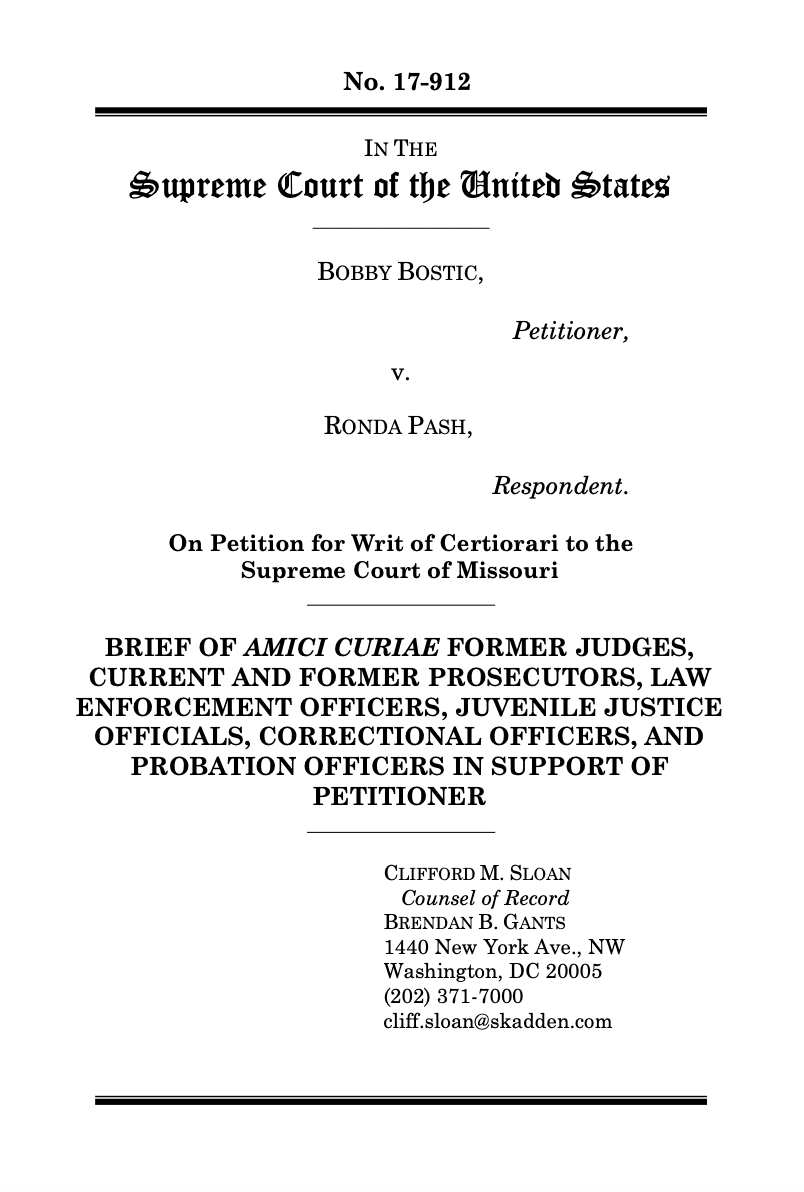
Summary of Argument
In the sentencing context, the Eighth Amendment requires courts to take into account that brain development is different in children and that juvenile offenders have a capacity to reform and grow. Those insights, which this Court has emphasized in numerous decisions—and which have been further confirmed by recent scientific research—are recognized by a wide range of judges, prosecutors, law enforcement officers, juvenile justice officials, correctional officers, and probation officers, many of whom have witnessed firsthand the potential for juvenile offenders to be rehabilitated. Amici respectfully urge the Court to ensure that this important principle is respected and enforced.
As officers of the law, amici also respectfully submit that the rule of law requires that this Court’s decisions recognizing constitutional protections not be subordinated to formalistic distinctions that undermine the Court’s reasoning. Petitioner’ssentence—in which he will not have the opportunity to be considered for release until he is 112 years old—was imposed to ensure that he will die in prison with no meaningful opportunity for release, even though he committed a non-homicide offense when he was a juvenile. To permit such a sentence merely because the sentence technically is for a term of years rather than “life in prison”—or because it is an aggregate sentence for more than one charge—would elevate form over substance and eviscerate this Court’s decision in Graham v. Florida, 560 U.S. 48 (2010). Prosecutors’ broad discretion to decide which charges to bring and how to structure them provides important flexibility that allows prosecutors to individualize charging decisions in the interest of justice. But the structuring of those charges should not affect the extent of the Eighth Amendment’s protections regarding the sentence imposed by the judge, or the applicability of this Court’s Eighth Amendment precedents.